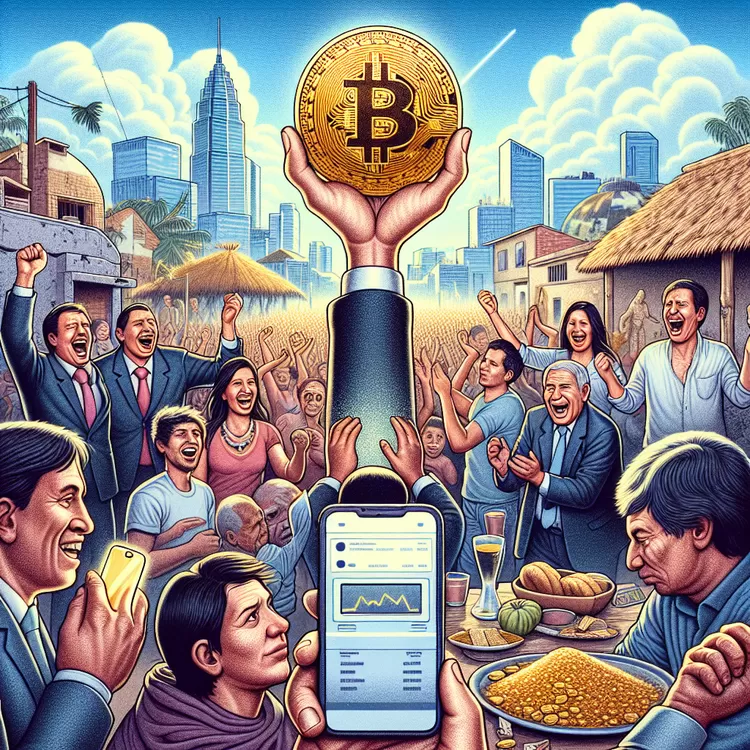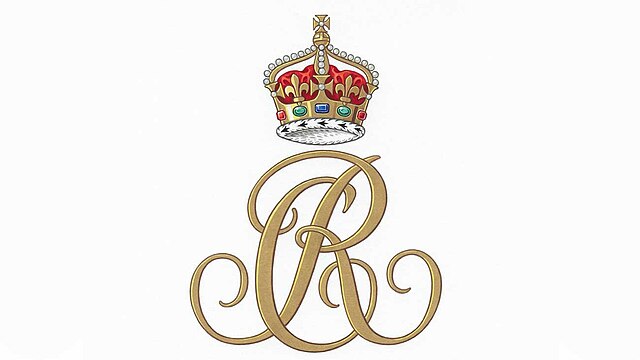El Salvador’s president, Nayib Bukele, is celebrating the success of his Bitcoin investment. He has used over $120 million of the country’s funds to purchase Bitcoin, and the value of his investment has now exceeded what he paid for it. Bukele has urged his critics to retract their negative statements and apologize for their skepticism. However, economists caution that it is too early to celebrate this high-risk bet on Bitcoin adoption.
Bukele recently stepped down as president to campaign for a controversial second term, which he is expected to win due to his popularity in the country. According to a website tracking his Bitcoin portfolio, the 2,764 coins he bought are now worth more than what he paid for them. If he were to sell them now, he could make approximately $3.7 million. However, these figures are based solely on Bukele’s posts announcing each purchase, and the creators of the website could not be reached for comment.
While Bukele’s posts have received praise from Bitcoin enthusiasts, some economists argue that the moment is not as significant as he would like it to be. The $120 million spent on buying Bitcoin is only a portion of the public funds used to promote Bitcoin in El Salvador since the country made it legal tender. Critics point out that the government has also spent money on developing the Chivo Wallet application, installing non-functional ATMs, providing a $30 bonus to citizens over 18 years old, and organizing propaganda and international events. When considering all these expenses, the overall result is negative.
Furthermore, the adoption of Bitcoin in El Salvador has not been as successful as Bukele and other Bitcoin enthusiasts had hoped. A BBC documentary found that most of the population is not using the digital currency, despite the heavy investment. Economists argue that the resources spent on promoting Bitcoin could have been used to address the country’s extreme poverty and food insecurity.
There are also concerns about the lack of transparency regarding the government’s Bitcoin spending and the status of Bukele’s reserves. No public body tracks this information, and critics argue that President Bukele’s tweets are not sufficient. Even some Bitcoin enthusiasts are critical of the lack of formal disclosure.
In conclusion, while President Bukele celebrates the success of his Bitcoin investment, economists caution that it is too early to determine the long-term impact. The adoption of Bitcoin in El Salvador has not been as successful as anticipated, and there are concerns about the lack of transparency and the allocation of public funds.
Original news source: Bitcoin rally: Is El Salvador’s Bitcoin bet paying off? (BBC)
Listen:
Slow
Normal
Fast
Vocabulary:
| 1 | investment | The act of putting money, effort, or time into something to make a profit or achieve a result |
| 2 | funds | Money that is set aside for a particular purpose |
| 3 | exceeded | Went beyond or surpassed a certain point or limit |
| 4 | skeptism | Doubt or disbelief about the truth or effectiveness of something |
| 5 | caution | Careful thought and consideration before making a decision or taking action |
| 6 | controversial | Causing disagreement or argument, often because it is against what most people believe |
| 7 | portfolio | A collection of investments or assets owned by an individual or organization |
| 8 | significant | Having a meaning or importance that is noticeable or worth paying attention to |
| 9 | portion | A part or share of a whole |
| 10 | legal tender | Legally recognized as a form of payment |
| 11 | expenses | Money spent or costs incurred in the course of doing business or carrying out an activity |
| 12 | adoption | The act of accepting or starting to use something new or different |
| 13 | successful | Achieving the desired result or outcome |
| 14 | transparency | The quality of being open, honest, and easily understood |
| 15 | allocation | The act of distributing or assigning something, especially money or resources |
Group or Classroom Activities
Warm-up Activities:
– News Summary
Instructions: Divide the class into small groups. Assign each group a different aspect of the article to focus on (e.g. Bukele’s Bitcoin investment, the adoption of Bitcoin in El Salvador, concerns about transparency). In their groups, students must collaborate to create a concise summary of their assigned aspect. After a designated amount of time, have each group present their summary to the class.
– Opinion Poll
Instructions: Have students form pairs or small groups. Each group will take turns being the “interviewers” and “interviewees.” The interviewers will ask their partners questions related to the article, such as “Do you think President Bukele’s Bitcoin investment was a good decision? Why or why not?” or “Do you believe the adoption of Bitcoin in El Salvador has been successful?” The interviewees will share their opinions and provide reasons to support their stance. After a set amount of time, have the groups switch roles.
– Sketch It
Instructions: Provide each student with a piece of paper and a pen or pencil. Instruct them to choose a key point or concept from the article and sketch a representation of it. Once they have finished, have students share their sketches with a partner or small group. The students must then explain their sketches and discuss the significance of the chosen point or concept.
– Keyword Hangman
Instructions: Select important keywords or phrases from the article and write them on the board, leaving out a few letters. Instruct the students to work individually or in small groups to guess the missing letters and complete the words or phrases. Encourage them to use their knowledge of the article and context clues to make educated guesses. The first person or group to correctly guess a word or phrase can explain its meaning and earn a point.
– Future Predictions
Instructions: Ask students to work individually or in pairs to make predictions about the future impact of President Bukele’s Bitcoin investment and the adoption of Bitcoin in El Salvador. They should consider both positive and negative outcomes and provide reasons to support their predictions. After a designated amount of time, have students share their predictions with the class and engage in a discussion about the potential consequences of these events.
Comprehension Questions:
1. How much money did President Bukele use to purchase Bitcoin?
2. What is the current value of President Bukele’s Bitcoin investment?
3. Why are economists cautioning against celebrating the success of the Bitcoin investment?
4. Why is President Bukele expected to win a controversial second term?
5. How much money could President Bukele make if he were to sell his Bitcoin now?
6. What are some of the expenses the government has incurred in promoting Bitcoin in El Salvador?
7. What did a BBC documentary find about the adoption of Bitcoin in El Salvador?
8. Why are there concerns about the lack of transparency regarding the government’s Bitcoin spending and Bukele’s reserves?
Go to answers ⇩
Listen and Fill in the Gaps:
El Salvador’s president, Nayib Bukele, is celebrating the success of his Bitcoin investment. He has used over $120 million of the country’s (1)______ to (2)______ Bitcoin, and the value of his investment has now exceeded what he paid for it. Bukele has urged his critics to retract their negative statements and apologize for their skepticism. However, (3)______ caution that it is too early to celebrate this high-risk bet on Bitcoin adoption.
Bukele recently stepped down as president to campaign for a controversial second term, which he is expected to win due to his popularity in the country. According to a website tracking his Bitcoin (4)______, the 2,764 coins he bought are now (5)______ more than what he paid for them. If he were to sell them now, he could make approximately $3.7 million. However, these figures are (6)______ solely on Bukele’s posts (7)______ each purchase, and the creators of the website could not be reached for comment.
While Bukele’s posts have received praise from Bitcoin enthusiasts, some economists argue that the moment is not as significant as he would like it to be. The $120 million spent on buying Bitcoin is only a portion of the public funds used to promote Bitcoin in El Salvador since the (8)______ made it legal tender. Critics point out that the government has also spent money on developing the Chivo (9)______ application, installing non-functional ATMs, providing a $30 bonus to citizens over 18 years old, and organizing propaganda and international events. When considering all these expenses, the overall result is negative.
Furthermore, the adoption of Bitcoin in El Salvador has not been as successful as (10)______ and other Bitcoin enthusiasts had hoped. A BBC documentary found that most of the population is not using the digital (11)______, despite the (12)______ investment. Economists argue that the resources spent on promoting Bitcoin could have been used to address the country’s extreme poverty and food insecurity.
There are also concerns about the lack of transparency regarding the government’s Bitcoin spending and the status of Bukele’s reserves. No public body tracks this information, and critics argue that President Bukele’s tweets are not (13)______. Even some Bitcoin enthusiasts are critical of the lack of (14)______ disclosure.
In conclusion, while President Bukele celebrates the success of his Bitcoin investment, economists caution that it is too (15)______ to determine the long-term impact. The (16)______ of Bitcoin in El Salvador has not been as successful as anticipated, and there are concerns about the lack of transparency and the allocation of public funds.
Go to answers ⇩
Discussion Questions:
Students can ask a partner these questions, or discuss them as a group.
1. What is your opinion on using public funds to invest in Bitcoin?
2. How would you feel if your country’s leader used a significant amount of public funds to invest in a high-risk asset like Bitcoin?
3. Do you think it is appropriate for a president to urge critics to apologize for their skepticism? Why or why not?
4. What are your thoughts on President Bukele stepping down as president to campaign for a second term?
5. How do you feel about the government spending money on developing a digital wallet application and non-functional ATMs for Bitcoin?
6. Do you think it is more important for a government to address extreme poverty and food insecurity or to promote the adoption of Bitcoin? Why?
7. What do you think about the lack of transparency regarding the government’s Bitcoin spending in El Salvador?
8. How would you feel if your country’s government did not track information about their spending and relied solely on the president’s social media posts?
9. Do you believe that the adoption of Bitcoin in El Salvador will have a long-term positive impact on the country? Why or why not?
10. What are your concerns about using public funds to invest in a volatile asset like Bitcoin?
11. How do you think the heavy investment in Bitcoin has affected the average citizen in El Salvador?
12. What is your opinion on the government organizing propaganda and international events to promote Bitcoin adoption?
13. Do you think it is important for a government to prioritize financial transparency? Why or why not?
14. How would you feel if your country’s leader made high-risk investments with public funds without consulting the public or providing formal disclosure?
15. What do you think will be the long-term consequences of El Salvador’s adoption of Bitcoin as legal tender?
Individual Activities
Vocabulary Meanings:
Match each word to its meaning.
Words:
1. investment
2. funds
3. exceeded
4. skeptism
5. caution
6. controversial
7. portfolio
8. significant
9. portion
10. legal tender
11. expenses
12. adoption
13. successful
14. transparency
15. allocation
Meanings:
(A) Achieving the desired result or outcome
(B) Money spent or costs incurred in the course of doing business or carrying out an activity
(C) Went beyond or surpassed a certain point or limit
(D) Having a meaning or importance that is noticeable or worth paying attention to
(E) The act of distributing or assigning something, especially money or resources
(F) The act of putting money, effort, or time into something to make a profit or achieve a result
(G) A part or share of a whole
(H) Causing disagreement or argument, often because it is against what most people believe
(I) The act of accepting or starting to use something new or different
(J) Doubt or disbelief about the truth or effectiveness of something
(K) The quality of being open, honest, and easily understood
(L) Legally recognized as a form of payment
(M) Money that is set aside for a particular purpose
(N) Careful thought and consideration before making a decision or taking action
(O) A collection of investments or assets owned by an individual or organization
Go to answers ⇩
Multiple Choice Questions:
1. How much money did President Bukele use to purchase Bitcoin?
(a) $3.7 million
(b) $30
(c) Over $120 million
(d) $2,764
2. Why has President Bukele urged his critics to apologize?
(a) He stepped down as president
(b) The value of his Bitcoin investment has exceeded what he paid for it
(c) He is campaigning for a second term
(d) He is popular in the country
3. What is the current value of President Bukele’s Bitcoin investment?
(a) $120 million
(b) More than what he paid for it
(c) $3.7 million
(d) $30
4. How successful has the adoption of Bitcoin been in El Salvador?
(a) Not as successful as hoped
(b) Extremely successful
(c) It has not been adopted at all
(d) The entire population is using it
5. What expenses has the government of El Salvador incurred in promoting Bitcoin?
(a) None, it has been a free promotion
(b) Only the purchase of Bitcoin
(c) Addressing extreme poverty and food insecurity
(d) Developing the Chivo Wallet application, installing non-functional ATMs, providing a $30 bonus to citizens over 18 years old, and organizing propaganda and international events
6. What concerns have been raised about the government’s Bitcoin spending?
(a) Lack of transparency and lack of formal disclosure
(b) The government has not spent any money on Bitcoin
(c) The government has not spent enough money on Bitcoin
(d) The government has spent too much money on Bitcoin
7. Who tracks the information regarding the government’s Bitcoin spending?
(a) The President’s tweets
(b) Bitcoin enthusiasts
(c) No public body
(d) Economists
8. What do economists caution about President Bukele’s Bitcoin investment?
(a) It has been a complete failure
(b) It has been extremely successful
(c) It has addressed extreme poverty and food insecurity
(d) It is too early to determine the long-term impact
Go to answers ⇩
True or False Questions:
1. Bukele has demanded his critics to apologize for their skepticism and retract their negative statements about his Bitcoin investment.
2. The adoption of Bitcoin in El Salvador has been as successful as Bukele and other Bitcoin enthusiasts had hoped.
3. Economists urge that it is too late to celebrate Bukele’s high-risk bet on Bitcoin adoption.
4. Praises have been raised about the transparency regarding the government’s Bitcoin spending and the status of Bukele’s reserves.
5. Bukele’s Bitcoin portfolio, consisting of 2,764 coins, is now worth more than what he paid for them.
6. El Salvador’s president, Nayib Bukele, has invested over $120 million of the country’s funds in Bitcoin.
7. Bukele recently stepped down as president to campaign for a controversial second term, which he is expected to win due to his popularity.
8. The value of Bukele’s Bitcoin investment has exceeded what he paid for it.
Go to answers ⇩
Write a Summary:
Write a summary of this news article in two sentences.
Check your writing now with the best free AI for English writing!
Writing Questions:
Answer the following questions. Write as much as you can for each answer.
Check your answers with our free English writing assistant!
1. How much money did El Salvador’s president, Nayib Bukele, use to purchase Bitcoin?
2. What is the current value of Bukele’s Bitcoin investment?
3. Why are some economists cautioning against celebrating Bukele’s Bitcoin investment?
4. What other expenses has the government of El Salvador incurred in promoting Bitcoin?
5. What concerns are there regarding the lack of transparency in the government’s Bitcoin spending?
Answers
Comprehension Question Answers:
1. President Bukele used over $120 million to purchase Bitcoin.
2. The current value of President Bukele’s Bitcoin investment is not specified in the article.
3. Economists caution against celebrating the success of the Bitcoin investment because it is considered a high-risk bet and the adoption of Bitcoin in El Salvador has not been as successful as anticipated.
4. President Bukele is expected to win a controversial second term due to his popularity in the country.
5. If President Bukele were to sell his Bitcoin now, he could make approximately $3.7 million.
6. Some of the expenses the government has incurred in promoting Bitcoin in El Salvador include developing the Chivo Wallet application, installing non-functional ATMs, providing a $30 bonus to citizens over 18 years old, and organizing propaganda and international events.
7. A BBC documentary found that most of the population in El Salvador is not using Bitcoin, despite the heavy investment.
8. There are concerns about the lack of transparency regarding the government’s Bitcoin spending and Bukele’s reserves because no public body tracks this information, and President Bukele’s tweets are not considered sufficient.
Go back to questions ⇧
Listen and Fill in the Gaps Answers:
(1) funds
(2) purchase
(3) economists
(4) portfolio
(5) worth
(6) based
(7) announcing
(8) country
(9) Wallet
(10) Bukele
(11) currency
(12) heavy
(13) sufficient
(14) formal
(15) early
(16) adoption
Go back to questions ⇧
Vocabulary Meanings Answers:
1. investment
Answer: (F) The act of putting money, effort, or time into something to make a profit or achieve a result
2. funds
Answer: (M) Money that is set aside for a particular purpose
3. exceeded
Answer: (C) Went beyond or surpassed a certain point or limit
4. skeptism
Answer: (J) Doubt or disbelief about the truth or effectiveness of something
5. caution
Answer: (N) Careful thought and consideration before making a decision or taking action
6. controversial
Answer: (H) Causing disagreement or argument, often because it is against what most people believe
7. portfolio
Answer: (O) A collection of investments or assets owned by an individual or organization
8. significant
Answer: (D) Having a meaning or importance that is noticeable or worth paying attention to
9. portion
Answer: (G) A part or share of a whole
10. legal tender
Answer: (L) Legally recognized as a form of payment
11. expenses
Answer: (B) Money spent or costs incurred in the course of doing business or carrying out an activity
12. adoption
Answer: (I) The act of accepting or starting to use something new or different
13. successful
Answer: (A) Achieving the desired result or outcome
14. transparency
Answer: (K) The quality of being open, honest, and easily understood
15. allocation
Answer: (E) The act of distributing or assigning something, especially money or resources
Go back to questions ⇧
Multiple Choice Answers:
1. How much money did President Bukele use to purchase Bitcoin?
Answer: (c) Over $120 million
2. Why has President Bukele urged his critics to apologize?
Answer: (b) The value of his Bitcoin investment has exceeded what he paid for it
3. What is the current value of President Bukele’s Bitcoin investment?
Answer: (b) More than what he paid for it
4. How successful has the adoption of Bitcoin been in El Salvador?
Answer: (a) Not as successful as hoped
5. What expenses has the government of El Salvador incurred in promoting Bitcoin?
Answer: (d) Developing the Chivo Wallet application, installing non-functional ATMs, providing a $30 bonus to citizens over 18 years old, and organizing propaganda and international events
6. What concerns have been raised about the government’s Bitcoin spending?
Answer: (a) Lack of transparency and lack of formal disclosure
7. Who tracks the information regarding the government’s Bitcoin spending?
Answer: (c) No public body
8. What do economists caution about President Bukele’s Bitcoin investment?
Answer: (d) It is too early to determine the long-term impact
Go back to questions ⇧
True or False Answers:
1. Bukele has demanded his critics to apologize for their skepticism and retract their negative statements about his Bitcoin investment. (Answer: False)
2. The adoption of Bitcoin in El Salvador has been as successful as Bukele and other Bitcoin enthusiasts had hoped. (Answer: False)
3. Economists urge that it is too late to celebrate Bukele’s high-risk bet on Bitcoin adoption. (Answer: False)
4. Praises have been raised about the transparency regarding the government’s Bitcoin spending and the status of Bukele’s reserves. (Answer: False)
5. Bukele’s Bitcoin portfolio, consisting of 2,764 coins, is now worth more than what he paid for them. (Answer: True)
6. El Salvador’s president, Nayib Bukele, has invested over $120 million of the country’s funds in Bitcoin. (Answer: True)
7. Bukele recently stepped down as president to campaign for a controversial second term, which he is expected to win due to his popularity. (Answer: True)
8. The value of Bukele’s Bitcoin investment has exceeded what he paid for it. (Answer: True)
Go back to questions ⇧















